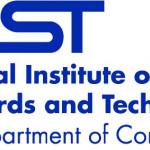- Industry: Technology
- Number of terms: 2742
- Number of blossaries: 0
- Company Profile:
The National Institute of Standards and Technology (NIST) — known between 1901 and 1988 as the National Bureau of Standards (NBS) — is a measurement standards laboratory and a non-regulatory agency of the United States Department of Commerce. The institute's official mission is to promote U.S. ...
A deterministic algorithm to generate a sequence of numbers with little or no discernible pattern in the numbers, except for broad statistical properties.
Industry:Computer science
A deterministic finite state machine that accepts finitary trees rather than just strings. The tree nodes are marked with the letters of the alphabet of the automaton, and the transition function encodes the next states for each branch of the tree. The acceptance condition is modified accordingly.
Industry:Computer science
A deterministic finite state machine that accepts infinite trees rather than just strings. The tree nodes are marked with the letters of the alphabet of the automaton, and the transition function encodes the next states for each branch of the tree. The expressive power of such automata varies depending on the acceptance conditions of the trees.
Industry:Computer science
A dictionary implemented with two hash tables of equal size, T<sub>1</sub> and T<sub>2</sub>, and two different hash functions, h<sub>1</sub> and h<sub>2</sub>. A new key is put in table 2 only if there are fewer (colliding) keys at T<sub>2</sub>(h<sub>2</sub>(key)) than at T<sub>1</sub>(h<sub>1</sub>(key)), otherwise it is put in table 1. With n keys and two tables of size n/2, the most collisions is 0.69... log<sub>2</sub> ln n + O(1) with high probability.
Industry:Computer science
A dictionary implemented with two hash tables, T<sub>1</sub> and T<sub>2</sub>, and two different hash functions, h<sub>1</sub> and h<sub>2</sub>. Each key, k, is either in T<sub>1</sub>(h<sub>1</sub>(k)) or T<sub>2</sub>(h<sub>2</sub>(k)). A new key, k, is stored in T<sub>1</sub>(h<sub>1</sub>(k)). If that location is already occupied by another key, l, the other key is moved to T<sub>2</sub>(h<sub>2</sub>(l)). Keys are moved back and forth until a key moves to an empty location or a limit is reached. If the limit is reached, new hash functions are chosen, and the tables are rehashed. For tables that are a bit less than half full and with carefully chosen universal hashing functions, performance is good. A key is deleted by removing it from a table.
Industry:Computer science
A dictionary in which keys are mapped to array positions by hash functions. Having the keys of more than one item map to the same position is called a collision. There are many collision resolution schemes, but they may be divided into open addressing, chaining, and keeping one special overflow area. Perfect hashing avoids collisions, but may be time-consuming to create.
Industry:Computer science
A dictionary in which keys are mapped to array positions by hash functions. Having the keys of more than one item map to the same position is called a collision. There are many collision resolution schemes, but they may be divided into open addressing, chaining, and keeping one special overflow area. Perfect hashing avoids collisions, but may be time-consuming to create.
Industry:Computer science
A directed acyclic graph with two specially marked nodes, the source s and the sink t.
Industry:Computer science
A directed acyclic word graph (DAWG) representing the suffixes of a given string in which each edge is labeled with the longest possible string. The strings along a path from the root to a node are the substring which the node represents.
Industry:Computer science
A directed graph that has a path from each vertex to every other vertex. Formal Definition: A directed graph D=(V, E) such that for all pairs of vertices u, v ∈ V, there is a path from u to v and from v to u.
Industry:Computer science
